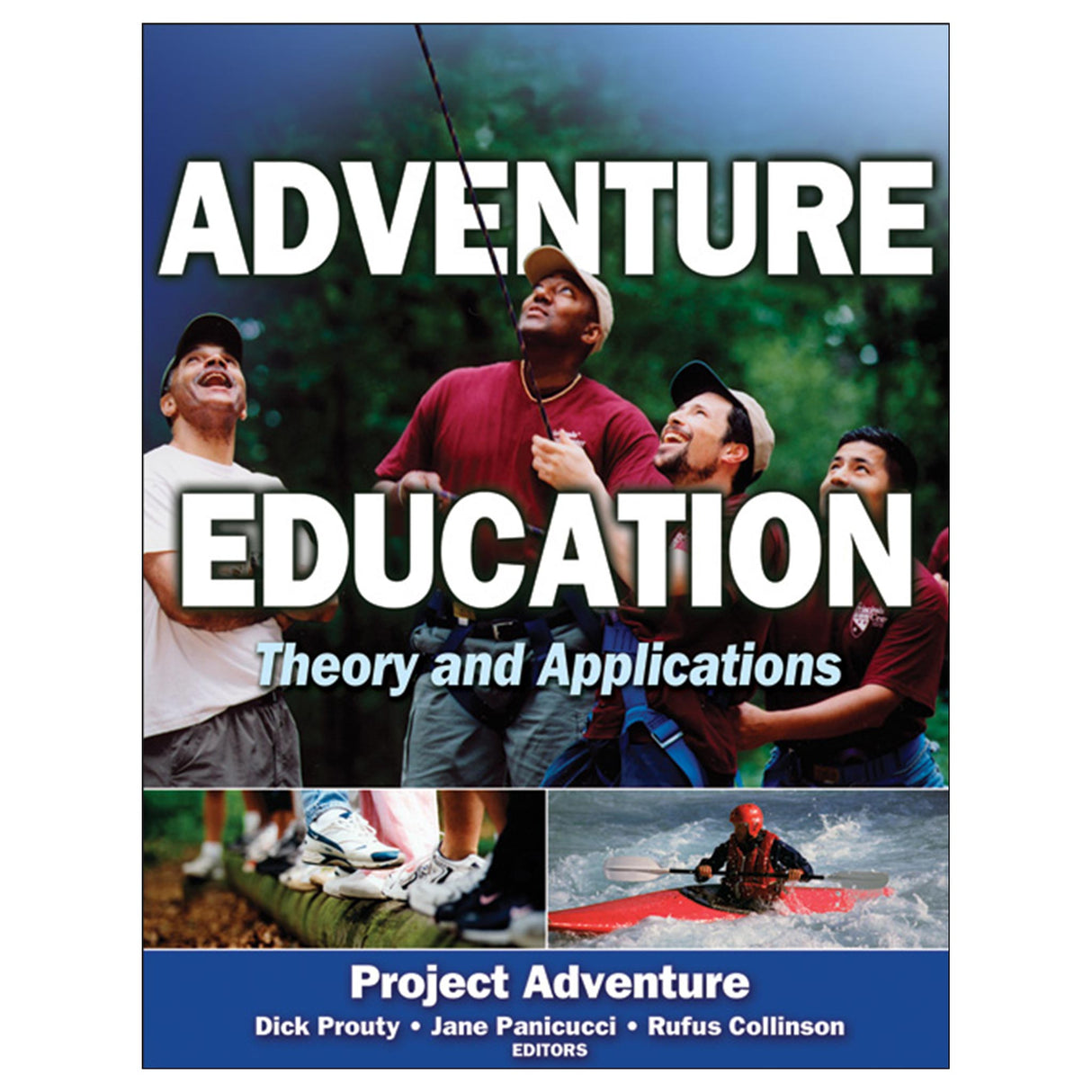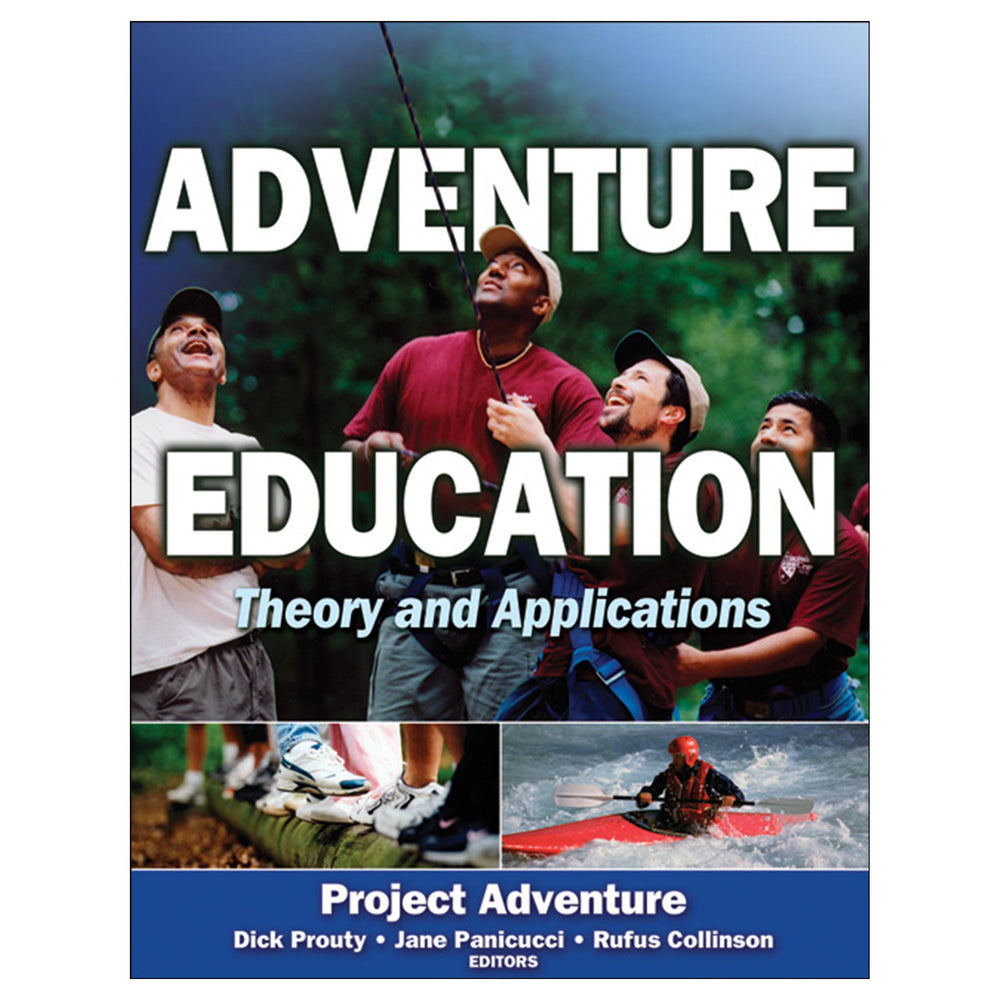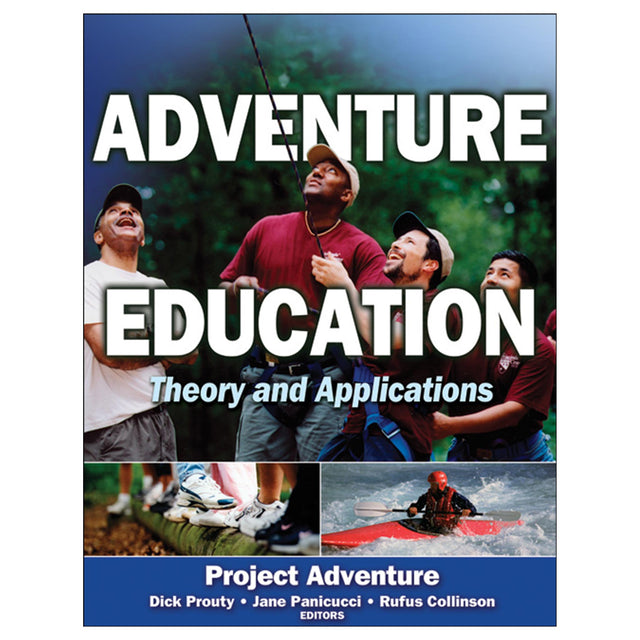Adventure Education: Theory and Applications
Theory and Applications
$68.95 CAD
Adventure Education: Theory and Applications allows students to
-get a broad view of adventure education and programming;
-explore the role of games, low- and high-element courses, and outdoor pursuits in adventure education;
-use key concepts, student activities, and Web-based research to enhance the learning process;
-employ real-world examples to explore strategies for adventure education in a variety of settings; and
-learn core skills for effective facilitation and leadership preparation in adventure programming.
With Adventure Education: Theory and Applications, adventure education enters the educational mainstream. This comprehensive text is ideal for introductory adventure courses in a variety of college departments and as a reference for professionals in the field.
Project Adventure, a leader in the field of facilities-based adventure learning, teams up with leading adventure educators and professionals to provide a broad view of adventure education and programming. Together, they present the foundational theories and applications of adventure education. In doing so, they
-explore the role of games, low- and high-element courses, and outdoor pursuits in adventure education;
-cover the core skills for effective facilitation and leadership preparation;
-include student-friendly features, such as key concepts, summaries, student activities, additional readings, and Web-based research to meet students' levels of experience and enhance the easy delivery of the course; and
-recommend strategies for adventure education and programming based on real-world examples that connect to a variety of recreational, educational, therapeutic, and community settings.
Part I presents the history of adventure education as well as the numerous theories and philosophies that have informed its development. It explores the world of adventure in education, health care, and therapeutic, corporate, and school settings. It also provides an overview of adventure organizations and career options, which is helpful to students who are interested in pursuing the study of adventure.
Part II outlines the technical and pedagogical skills needed for facilitating adventure experiences.
Part III describes each adventure component, explaining how they work in the educational process. It covers facilities-based pursuits such as games, cooperative activities and initiatives, and challenge courses as well as outdoor pursuits. Some sample activities and many additional resources are provided. The final chapter covers models for programming adventure in educational, therapeutic, corporate, and community settings.
For students who select careers in other fields, the leadership and team skills learned through Adventure Education: Theory and Applications will serve them well in their future workplaces. For students who do go into adventure education, this text is their guide for finding their own paths in the field.
Audience
Text for undergraduate adventure education courses in physical education, recreation, and outdoor education departments. Resource for entry-level employees in adventure, outdoor education, and recreation positions.
Part I. Exploring Adventure Education
Chapter 1. Introduction to Adventure Education
Dick Prouty
Chapter 2. Philosophy and Theory of Adventure Education
Alan Ewert and Dan Garvey
Chapter 3. Cornerstones of Adventure Education
Jane Panicucci
Chapter 4. Risk and Safety in Adventure Programming
Charles R. Gregg
Chapter 5. Individual Outcomes of Participating in Adventure
Jim Stiehl and Melissa Parker
Part II. Defining Skills and Competencies for Adventure Practitioners
Chapter 6. Responsibilities of Adventure Education Leaders
Denise Mitten and Kent Clement
Chapter 7. Facilitating the Adventure Process
Michael A. Gass and Cheryl A. Stevens
Part III. Planning and Implementing Adventure Experiences
Chapter 8. Portable Adventure Activities
Lisa Faulkingham Hunt
Chapter 9. Low-Element Challenge Courses
Alison Rheingold
Chapter 10. High-Element Challenge Courses
Christopher J. Damboise
Chapter 11. Teaching and Leading Outdoor Adventure Pursuits
Mark Wagstaff, Aram Attarian, and Jack K. Drury
Chapter 12. Adventure Education Programming and Career Paths
Steven Guthrie and Rita Yerkes
Appendix: Overview of the Accreditation Standards of the Association for Experiential Education
Dick Prouty, AB, is Project Adventure's president, executive director, and CEO. With Project Adventure since 1980, he facilitated the structure of PA as a 501(c)3 nonprofit organization. In 1982, he became director and led the strategic planning and organizational development of PA as it became the premier organization of facilities-based adventure learning. Coauthor of PA's classic text on adventure-based counseling, Islands of Healing, Prouty has become a leading proponent of the unique place and theory of adventure-based experiential education. He has also served as founder of the Association for Experiential Education's (AEE) accreditation committee, founder of the board of directors of Association for Challenge Course Technology (ACCT), and chair of the board of the Waring School. Prouty's current responsibilities at PA include strategic planning, partnering and development planning, directing new publications, and leading the senior executive team.
Jane Panicucci, MAEd, is currently Project Adventure's chief operations officer. Her adventure background includes 11 years as a course director at Outward Bound. In the mid-1980s, as a public school physical educator, Panicucci designed an adventure curriculum that is still going strong. Her current consulting specialties involve working with teachers and administrators to generate positive change in their schools and to create high-performing teams for both nonprofit and for-profit organizations. She is the lead author of PA's series of adventure curricula for physical education and is currently working on a fitness program curriculum.
Rufus (Ruthanne) Collinson has been working in the adventure field for 18 years as manager of communications, editor, and book developer for Project Adventure (PA). She is responsible for editing and developing all PA publications. Rufus is also a published poet. She and her daughter Suzanna have conducted experiential writing workshops, called Words from the Wild, at several field conferences. In 2001, Rufus received the Association for Experiential Education's (AEE) Karl Rohnke Creativity Award.
About Project Adventure
Project Adventure is an innovative teaching organization that provides leadership in the expansion of adventure-based experiential programming. Project Adventure develops responsible individuals, productive organizations, and sustainable communities.
In its 32-year history, Project Adventure has had its programs adopted and adapted throughout the world. It has published numerous titles based on its research, and it has its Rainbow Lake Campus in Covington, Georgia, where it helps more than 100 youths enrolled in court-adjudicated programs to become productive citizens. It also has partnerships with Prescott University in Arizona and the University of New Hampshire. Through these partnerships, Project Adventure researches and develops programs and materials that can be used anywhere.





